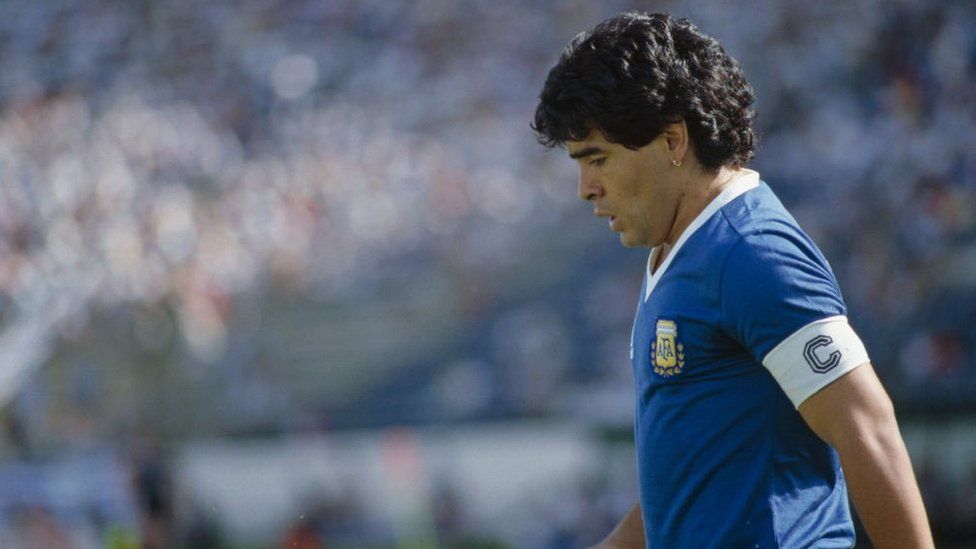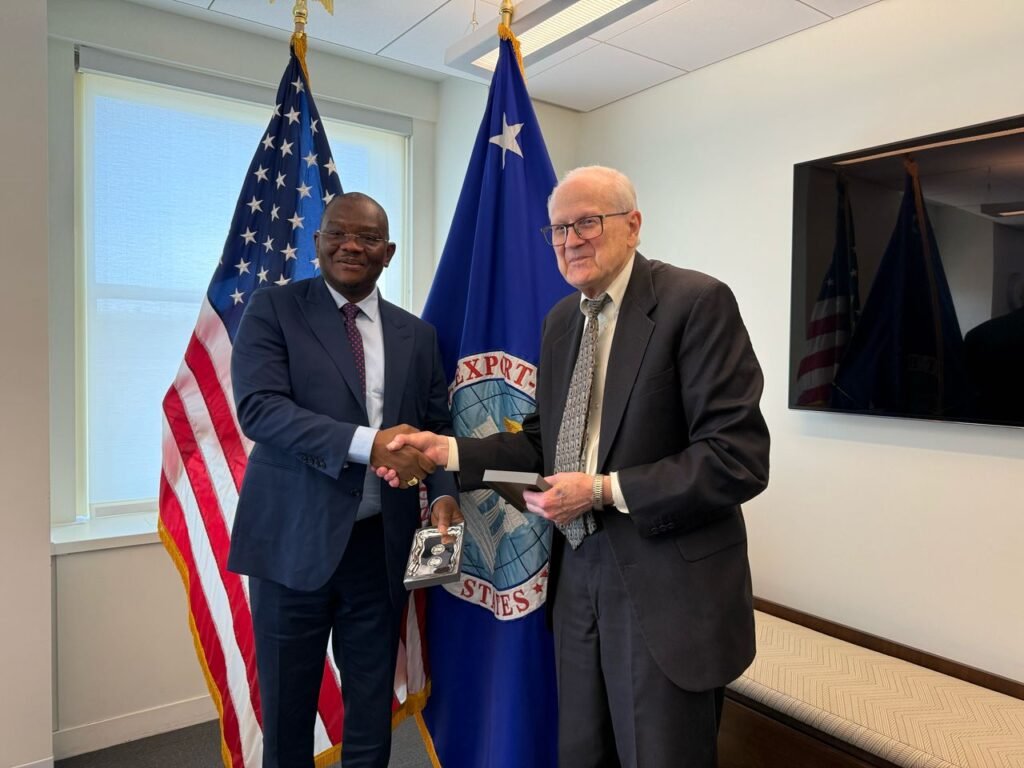Hot!
Maradona: Medical staff to face trial for football legend’s death

Eight medical personnel are to stand trial accused of criminal negligence in the death of legendary Argentinian footballer Diego Maradona.
A judge has ordered a culpable homicide trial after a medical panel found Maradona’s treatment was rife with “deficiencies and irregularities”.
Maradona died in November 2020 of a heart attack in Buenos Aires, aged 60.
He had been recovering at home from surgery on a brain blood clot earlier that month.
A few days after his death Argentine prosecutors launched an investigation into the doctors and nurses involved in his care.
Last year, the panel of 20 experts appointed to examine his death found Maradona’s medical team acted in an “inappropriate, deficient and reckless manner”.
It also concluded that the footballer “would have had a better chance of survival” with adequate treatment in an appropriate medical facility, according to the court ruling.
Among those facing charges are Maradona’s neurosurgeon and personal doctor, Leopoldo Luque, a psychiatrist and psychologist, two doctors, two nurses and their boss. They have all denied responsibility for his death.
All eight will be tried on a legal definition of homicide based on negligence committed in the knowledge that it may lead to a person’s death.
The crime can hold a sentence of eight to 25 years in prison, according to Argentina’s penal code. A date for the trial is yet to be set.

Mario Baudry, a lawyer for one of Maradona’s sons, told Reuters that the football legend was “in a situation of helplessness” by the time of his death.
“As soon as I saw the cause, I said it was homicide. I fought for a long time and here we are, with this stage completed,” he said.
The legal proceedings were prompted by a complaint filed by two of Maradona’s daughters. They raised concerns about their father’s treatment after the brain operation.
In an emotional press conference in November 2020, Dr Luque cried, saying he had done all he could to save the life of a friend.
At one point, the doctor shot back at reporters: “You want to know what I am responsible for? For having loved him, for having taken care of him, for having extended his life, for having improved it to the end.”
The doctor said he had done “everything he could, up to the impossible”.
Diego Maradona is largely considered to be one of the greatest footballers to ever play the game. He was captain when Argentina won the 1986 World Cup, scoring the famous ‘Hand of God’ goal against England in the quarter-finals.
During the second half of his career, Maradona struggled with cocaine addiction and was banned for 15 months after testing positive for the drug in 1991.
The news of his death threw the football world – and his home country of Argentina – into deep mourning, with many thousands of people queuing for hours to walk by his coffin at the presidential palace in Buenos Aires.
Source: BBC
Hot!
GEXIM deepens relations with US EXIM Bank

A management team of the Ghana Export – Import Bank (GEXIM) led by the Acting Chief Executive, Sylvester Mensah met with the leadership of the Export–Import Bank of the United States (US EXIM) on Wednesday April 23, 2025 in Washington DC, United States of America.
The Acting President and Chairman of US EXIM, Mr. James C. Cruse and Vice President, International Relations, Ms. Isabel Galdiz received the GEXIM delegation, which included Deputy CEO for Banking, Mr. Moses Klu Mensah and Head of International Cooperation, Mr. Jonathan Christopher Koney at the headquarters of US EXIM.

The meeting offered the GEXIM team the opportunity to share the strategic direction of the Bank in line with the resetting agenda of the President of the Republic, His Excellency John Dramani Mahama for the repositioning of the Ghanaian economy into an export-led one by providing the requisite investment to Ghanaian businesses.
Mr. James C. Cruse expressed US EXIM’s eagerness to deepen its existing relations with GEXIM and proposed the signing of a new Cooperative Framework Agreement following the expiration of a Memorandum of Understanding signed in 2019 to utilize US EXIM’s medium term loan guarantees to procure machinery by GEXIM for qualified Ghanaian Small and Medium-sized Enterprises (SMEs).
Mr.Sylvester Mensah thanked the Acting President and Chairman of US EXIM for hosting the GEXIM delegation and reaffirmed the Ghanaian government’s commitment to strengthening trade and investment between Ghana and its global partners for economic transformation of Ghana with GEXIM playing a pivotal role.
The two teams will be meeting on the sidelines of the 2025 US EXIM Annual Conference on 29th and April 30, 2025 to explore possible areas of collaboration and matching Ghanaian businesses to American companies. The meeting ended with an exchange of gifts.
Hot!
Many SOEs have been used as mere instruments for personal wealth accumulation –Pres.Mahama

President John Dramani Mahama has expressed concern over the misuse of State-Owned Enterprises (SOEs) for personal financial gain by individuals in leadership positions.
Speaking during a meeting with Chief Executives of specified entities under the State Interest and Governance Authority (SIGA) on Thursday, March 13, the President directly attributed the dire state of SOEs to their leadership, accusing chief executives, management teams, and governing boards of prioritising personal enrichment over organisational efficiency.
He pointed to bloated budgets, unjustified allowances, and unnecessary expenditures as factors draining public funds while SOEs continue to rely on government bailouts.
“Many SOEs have been used as mere instruments for personal wealth accumulation by appointees. The chief executives, management, and boards of these enterprises are responsible for this situation. Some SOEs have become perennial loss-makers, draining public funds with bloated budgets, unjustified allowances, and unnecessary expenditures while relying on government bailouts as if entitled to them. Many of these entities are at their lowest point in the entire history of the Fourth Republic,” he said.
President Mahama further noted that many SOEs have been plagued by inefficiencies, corruption, and mismanagement, leading to consistent financial losses. He cited the 2023 State Ownership Report by the State Interests and Governance Authority (SIGA), which highlighted systemic inefficiencies and wasteful expenditures within these entities.
He therefore reaffirmed his commitment to reforming under-performing SOEs and ensuring they serve national interests.
He warned that loss-making SOEs will no longer be tolerated and will either be merged, privatised, or closed.
“I will assess you based on your performance. If you do not align with the pace of the reset agenda, you may be asked to step aside. If that adds to the horror movie, so be it,” he added.
Source: Myjoyonline.com







